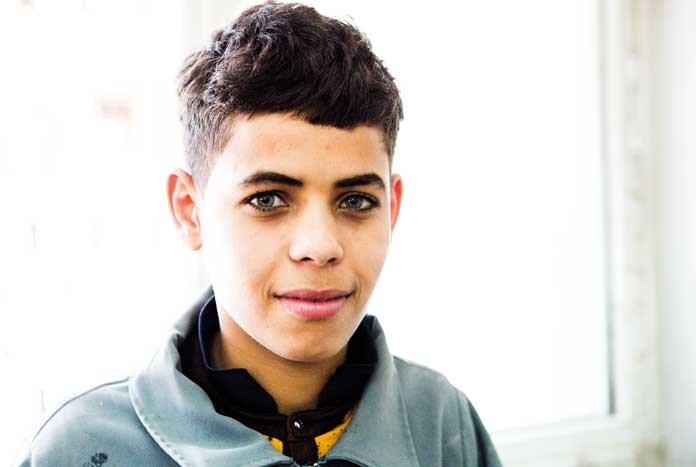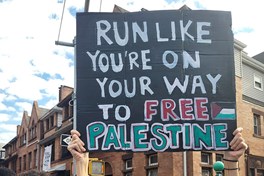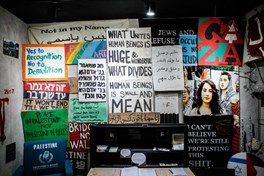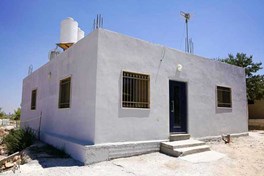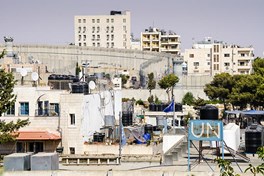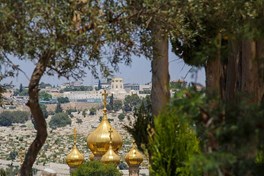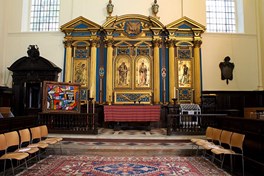“Greetings Dear Readers, from one of the hottest spots in the world, the Gaza Strip. What is known as an impoverished coastal enclave, densely populated and until recently was known as one of the few places that was corona-free — that was until two exogenous cases were detected.” Gazan journalist Omar Ghraieb writes exclusively for Amos Trust about life in the Gaza Strip and COVID-19.
A young boy from Gaza City attending one of NECC’s play sessions. NECC offers psychosocial support and vocational training to the young people of Gaza — the innocent victims of three wars since 2009 — giving them hope for the future.
Greetings Dear Readers, from one of the hottest spots in the world, the Gaza Strip. What is known as an impoverished coastal enclave, densely populated and until recently was known as one of the few places that was corona-free — that was until two exogenous cases were detected.
Now we have joined the global fight against this deadly virus, despite not being well equipped like other countries due to occupation and blockade, and with a fragile and lacking health system, but we will delve into that later on.
Let me introduce myself, my name is Omar and I am a Palestinian citizen journalist living in the Gaza Strip. I spent years in journalism and humanitarian work and I am here to take you on a unique journey. Thanks to Amos Trust and their constant support to Gaza through campaigns that tell compelling stories from the Strip, I can now use their platform to open for you a window into Gaza, giving you a taste of the reality of life on the ground here.
Gaza remained corona-free which was baffling the whole world since this virus is ubiquitously spreading everywhere. But then, two Palestinians coming from Pakistan caught a fever while in quarantine, they were immediately tested and turned out positive. Despite the lack of resources and a fragile health system, Gaza has managed to increase its quarantine centres including hotels, hospitals, schools and rooms that are under construction in Rafah at the southern end of the Strip. By the end of March, the Palestinian ministry of health reported 155 coronavirus cases in Palestine of which 12 are in Gaza, all in quarantine. The numbers will most probably increase with time as the virus progresses and more people are tested.
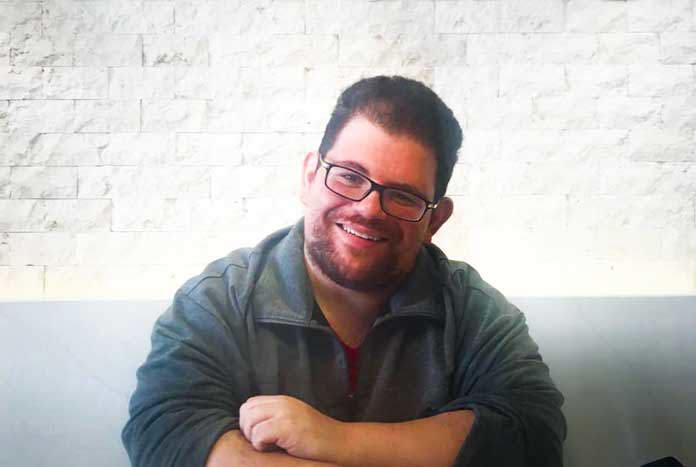
Gazan journalist and humanitarian worker, Omar Ghraib. You can follow Omar on Twitter at twitter.com/Omar_Gaza
So what does that change? Nothing really. Gaza is no stranger to lockdowns, curfews, lack of resources or even a collapsing economy. After years of occupation, blockade and internal division, people here are very much adapting to the circumstances and different emergency stages. The Strip has survived several wars, invasions and decades-long armed conflict. We have seen it all. We are programmed to adapt to any crisis and become immune to it.
Thanks to Amos Trust and their constant support to Gaza through campaigns that tell compelling stories from the Strip, I can now use their platform to open for you a window into Gaza, giving you a taste of the reality of life on the ground here.”
If you walk through Gaza’s streets, you will notice different characteristics. While some roads have high pavements and look fancy with big trees flailing on both sides trying to mask big villas and mansions behind them, other streets are narrow with broken roads and humble houses cramped next to each other to form a camp. No, not the kind of camp that you would send your kid to during summer — a refugee camp.
The streets may vary but no street is safe from destruction during assaults or air strikes. In war, all streets are equal and every street might be a target. What also brings those opposite streets together is the spirit of the people living on them. Big house, small house, or no house — the Palestinian spirit of steadfastness shines through no matter what.
Whatever street you decide to stroll through, you will find children laughing and playing around, making the best of whatever space they have — while parents and youth gather to sit in front of their houses to exchange conversations, smoke hookah, or play cards. Those scenes can be observed across the Gaza Strip, no matter how posh or basic the area is.
So what does that change? Nothing really. Gaza is no stranger to lockdowns, curfews, lack of resources or even a collapsing economy. After years of occupation, blockade and internal division, people here are very much adapting to the circumstances and different emergency stages.”
Judging from Gaza’s history, it’s only natural to feel a sense of death and misery that lingers among Gaza’s streets after all the tragedies they have endured. But at the same time, you quickly feel the overpowering sense of hope, determination, strength, success and effervescence which is second nature to Gazans.
Gaza has a complexity that confuses. On one hand, it appears like any other city in the world but on the other, we are nothing like other cities. Our daily life routine includes power outages that we have adapted to, which can extend up to 12 hours each day. What we lack in our health system, economy and employment sectors, we make up for through our unwavering hunger for life, peace, justice and freedom. We might have nothing, yet we will welcome you warmly and offer you our last piece of bread. We might be under bombardment yet we insist on life being normal and unaffected, somehow.
So, while the world goes on lockdown due to the fear of the Coronavirus, Gaza maintains its normal daily bustling life. Yes, it’s wrong, I know — we need to take preventive measures and practice social distancing — but what do you expect from people who live in what is known as the biggest open air prison on earth, and who are subjected continuously to so many crises to the point where it has become second nature?
Gaza has a complexity that confuses. On one hand, it appears like any other city in the world but on the other, we are nothing like other cities. Our daily life routine includes power outages that we have adapted to, which can extend up to 12 hours each day.”
Unfortunately, (or fortunately), we lost our sense of fear and danger long ago due to becoming accustomed to it, which is why we aren’t panicking. Lack of resources was never something unprecedented and most people here live under the poverty line and depend on UNRWA food aid, which is why we don’t run to stock up and empty supermarkets.
We take it one day at a time and hope for the best. This is wrong you say? Well, what other options do we have? I recall how my colleague’s 12-year old son looks at me in total carelessness — ignoring the dismay in his mom’s eyes and told me: “I survived three wars and countless assaults on Gaza, and I am only 12.
Do you think a virus scares me? No. I want to go out and play”. How can you convince this child that his health is in danger when danger was the highlight of his young years while growing up?
If anything, this pandemic teaches us the importance of togetherness and being united because our survival depends on it. So here I am — wishing you safety and health from Gaza and hoping we all meet again on the other side when this nightmare ends. Let’s make the world a better place if we survive this, and let’s all unite for justice. Until then, please take care. And stay home.
— — — — — — —
Omar will be writing extensively about life in Gaza for our new Ahlan Gaza project.
— — — — — — —
Please sign up to receive Amos Trust’s E-news which will keep you updated about our work in Palestine, our On Her Terms campaign for girls and young women on the streets and our Climate Justice work in Nicaragua.

